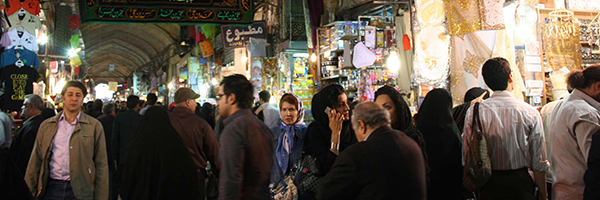UN Experts: US Sanctions Violate Iranians’ Human Rights
Top United Nations experts have criticized US government sanctions for violating the human rights of Iranians.
They made it clear that the unilateral coercive measures that the United States has imposed on Iran violate international law.
A group of UN special rapporteurs stressed that these sanctions have a “negative impact” on “the enjoyment of the right to a clean, healthy and sustainable environment in the Islamic Republic of Iran and on the right to health and the right to life.”
Violating Iranians’ right to life is a roundabout diplomatic way of saying that US sanctions are killing them.
The UN experts sent a formal letter to the United States condemning its sanctions and requesting that it investigate and remove them.
The special rapporteurs expressed their “serious concerns about the U.S. sanctions as a significant contributing factor in Iran’s environmental degradation, which negatively affects Iranian people’s rights to a healthy and sustainable environment, to health, to life, and to an adequate standard of living.”
They added that “U.S. sanctions impede the enjoyment of the right to education” in Iran.
Washington constantly accuses Tehran of violating its people’s rights. The US government also publicly claims to support the struggle against climate change and pollution, and on paper it recognizes that people have the right to a clean environment.
But Washington’s “sanctions against Iran contradict what seems to be a clear US position on this matter,” the UN experts said.
“It is time for sanctions that impede Iran’s ability to improve the environment and reduce the ill effects on health and life, to be eased or lifted completely so that Iranians can access their right to a clean environment, the right to health and to life, and other rights associated with favourable environmental conditions,” they insisted.
The UN special rapporteurs noted:
Since 1979, the United States of America has imposed a broad and complex network of stringent financial, economic, and trade sanctions against Iran, including a comprehensive trade ban, significant measures to isolate Iran from the international financial and commercial system, as well as secondary sanctions against non-U.S. parties that engage in dealings with Iran.
Some (but not all) of these sanctions were removed or eased in 2015, when US President Barack Obama signed the Joint Comprehensive Plan of Action (JCPOA), the nuclear agreement with Iran that was also joined by the other permanent members of the UN Security Council (Britain, France, China, and Russia), Germany, and the European Union.
In 2018, US President Donald Trump unilaterally withdrew from the JCPOA, in violation of a UN Security Council resolution, and subsequently imposed more sanctions on Iran, in clear contravention of international law.
The UN experts noted that the Trump administration not only re-imposed “sanctions that had been lifted or eased under the JCPOA”; it also “introduced additional measures. These sanctions targeted Iran’s energy, shipbuilding, shipping and financial sectors, and included the listing of more than 700 individuals, entities, aircraft and vessels.”
US threats of secondary sanctions on foreign countries and firms that do business with Iran, as well as overcompliance, make the unilateral coercive measures even more punishing, the UN special rapporteurs wrote:
The full impact of the U.S. sanctions in Iran is magnified by considerable overcompliance on a global scale resulting from complex, time-consuming and/or costly compliance procedures; extraterritorial enforcement and fears of penalties for inadvertent breaches; and sanctions-related obstacles to financial transactions for goods and services that the sanctions do not prohibit.
The primary author of this letter, the top UN expert on sanctions, Alena Douhan, has previously released reports detailing the catastrophic impact that illegal US sanctions have had on civilians in Venezuela and Syria.
She said these “outrageous” US sanctions are “suffocating” millions of civilians and “may amount to crimes against humanity.”
The letter concerning US sanctions on Iran was signed by the following UN human rights experts:
- Alena Douhan, special rapporteur on the negative impact of unilateral coercive measures on the enjoyment of human rights
- Richard Bennett, special rapporteur on the situation of human rights in Afghanistan
- Ian Fry, special rapporteur on the promotion and protection of human rights in the context of climate change,
- Tlaleng Mofokeng, special rapporteur on the right of everyone to the enjoyment of the highest attainable standard of physical and mental health
- Livingstone Sewanyana, independent expert on the promotion of a democratic and equitable international order
- Obiora C. Okafor, independent expert on human rights and international solidarity
- Fernand de Varennes, special rapporteur on minority issues

 Ben Norton, Multipolarista,
Ben Norton, Multipolarista,